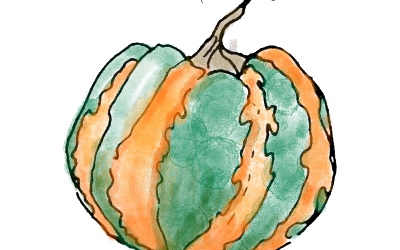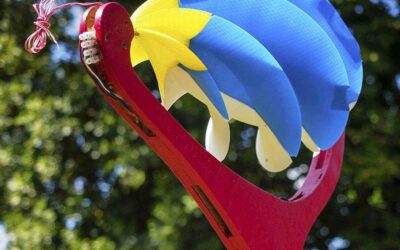Learning to Love Deadwood

Most of us use metaphors without really thinking about what they mean. When we want to describe someone in the office as dispensable, for example, we say he or she is “deadwood.” The dictionary tells us the word describes “people or things within an organization that are no longer useful or needed.” Who hasn’t wished that deadwood would just retire, and make room for young growth? Seems obvious, no?

Well, go for a walk on the CEED trails with Program Director and Educator Eric Powers, and you will see deadwood in a whole new light! It turns out that deadwood is a crucial element of forest and woodland ecology, providing habitats for essential insects and birds long before it falls to the forest floor to decompose into rich soil. In fact, a 2004 World Wildlife Fund Report Deadwood – living forests, warns that “a severe lack of deadwood in managed forests and inappropriate protected area management are key reasons for biodiversity loss….” Who knew?
But standing deadwood is home to many animals, including birds (like woodpeckers!), bats and raccoons, which make nests in hollow areas. It is a food source for insects, mosses, lichens and fungi and a storage area for squirrels hiding their nuts. And finally, of course, logs on the forest floor can also act as “nurses” for new seedlings. The U.S. Forest Service estimates that some 1,200 forms of fauna rely on dead, dying or rotted-hollow trees.
CEED’s nature trails are a treasure-trove of endlessly fascinating features of our natural world—and our language. So take to the trails and do something different from what you usually do or, as the dictionary says, “branch out.”
– Lisa Anderson, CEED Board Member
Recent posts
This is Me: Connections
Saturday, September 28, 2024, 3 PM - 5 PM Join us for a free concert celebrating who we are as individuals, communities, and our connection to the world around us. It features professional musicians, community members, dancers, and poets. It is an opportunity for...
Gourds in Watercolor or Sketching
Sunday, October 6, 2024, 11 AM - 1 PM This is the fifth of a bi-monthly offering of classes from local nature artist and educator, Jenn Lucas. Join artist Jennifer Lucas for an afternoon of sketching and adding color to the Halloween spirit. This workshop is for...
Sculptures for Sale Through Oct. 12
The amazing sculptures that were created for our 2024 Sculpture on the Trail are available for purchase from the artists. For more information, email Jennifer Vorbach (jennifer.vorbach@me.com). For artists names and bios, click here.[dmg_masonry_gallery...
Back to blog home >>



